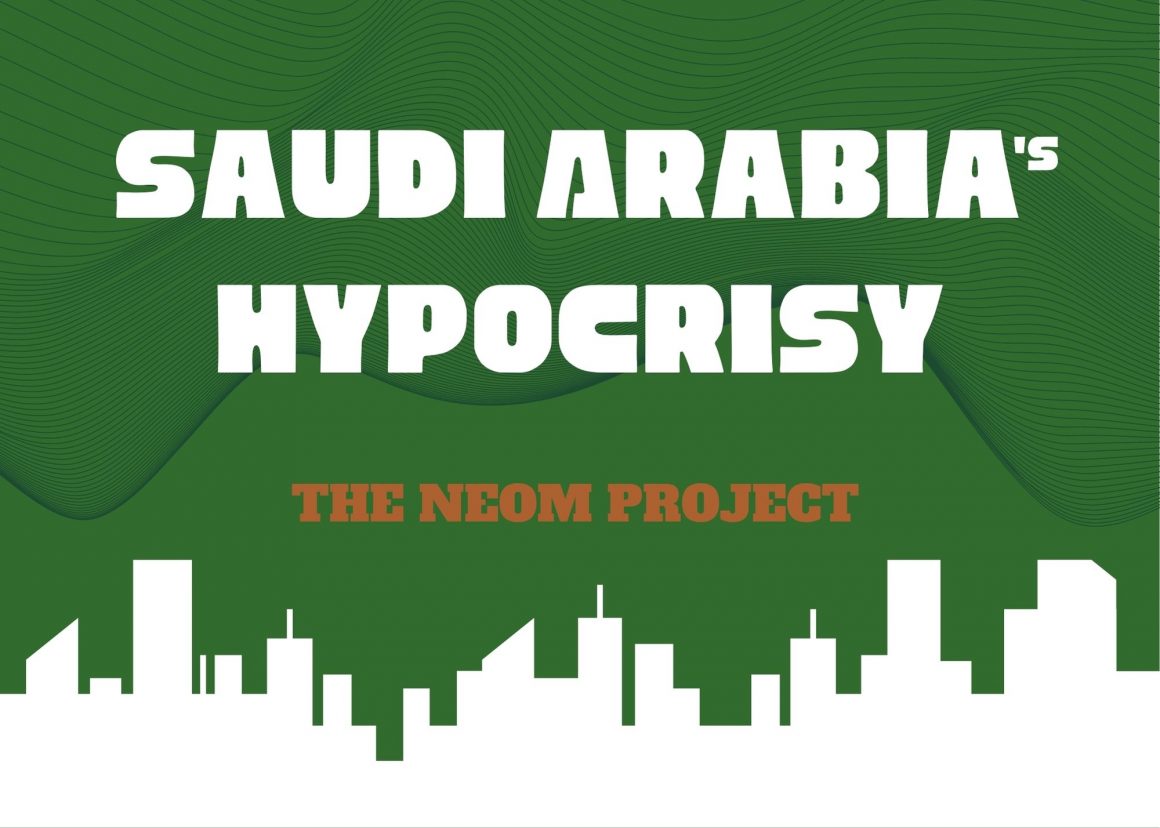
How Saudi Arabia’s hypocrisy is getting out of hand
By Nazeefa Ahmed, September 19 2022—
Saudi Arabia, once a destitute land, was struck with good fortune in 1938 when an American-owned oil well in Dhahran drilled into the largest untapped source of petroleum in the world. The discovery led to the exponential growth of Saudi Arabia’s economy, creating a political monolith in the Middle East — immovable and absolute.
The demand for Saudi oil does not seem to be decreasing any time soon. Due to the recent and ongoing Ukrainian war, the country’s oil prices jumped by 50 per cent in 2022, according to Bloomberg. Higher prices led to a 15 billion USD surplus between January and March and some of the highest oil exports in the last six years.
The country is literally brimming with wealth — some would argue unsustainable wealth.
Despite the surpluses and positive reports, the absolute dependence on a finite resource is an Achilles’ heel in the country’s stability. Oil prices tend to be unpredictable and is one of the first commodities to drop value in recessions. Saudi Arabia has dealt with dips in oil prices before and suffered, such as the financial crisis of 2008, and the dip in prices in 2014. Additionally, as the world turns to more sustainable options, and as oil wells run out of supply, the petro-state will need to adapt to be competitive in a changing economic landscape.
Crown prince Mohammed bin Salman seemed to recognize the dwindling clock and, in 2016, launched Vision 2030. The plan will attempt to make the country less dependent on oil, fund research and innovation, and grow the private sector.
Among other initiatives such as developing the health sector, creating 1000 art installations, and developing the Red Sea coast into a tourist attraction, the Neom project is the most heavily advertised worldwide. The ambitious city development project will cost a trillion dollars to build and hopes to be the first net zero emissions city. Stretching 170 km into the Tabuk province, the city is to serve as both a tourist attraction and a place where international business can flourish in a free market economy.
Attempting to be the leaders of the green future, the project advertised itself as a clean city being built on “virgin lands.” Yet, ecological concerns are already at the forefront. The walls of the city will be a mirrored surface, causing massive heat zones in an already scalding desert. A line of such length will also hinder the movement of animals, causing inbreeding, genetic disorders, and an overall decrease in genetic diversity.
The land is not virgin either. The Neom project will be displacing around 20,000 members of the Huwaitat tribe, who have been living in the area since before the country’s beginnings. Abdul Rahim al-Huwaiti, a resident and advocate for the tribe, posted videos on social media of his complaints and once confronted a Saudi official in the area. His advocacy was met with a mysterious death, later concluded to be an assassination.
Since the country is ruled by a dictator, the royal family does not consider its citizens when making such financial decisions for the country. It is dangerous to speak badly about the royal family at all — their intentions and actions can never be questioned.
Their attempt to create a sustainable city is also hypocritical given the impoverished state of much of Saudi Arabia. Some parts of Saudi Arabia lack clean running water, while other areas such as the Kilo 6 slum flood during rainfall and lack a proper sewage system. Instead of solving pre-existing problems within the country, the government is greenwashing a project that may promise more than it can deliver. If the project has a low return on investment, it could put a dent in the country’s finances that would only hurt the poor more.
Citizens who are living below the poverty line are not provided the means to come out of poverty, while rich oil tycoons find a way to show off their new bells and whistles with this vanity project. That, paired with the austerity measures of Vision 2030, is causing Saudi’s in lower classes to be pushed further into poverty. The stark difference of quality of life under the guise of progress is comical to say the least.
The Neom project also hopes to use the data of its planned nine million residents to make the lives of its residents as smooth as possible. Facial recognition and artificial intelligence will be at every corner, creating an Orwellian environment of surveillance. As our society becomes more aware of online privacy issues and grows more hesitant to give information away, asking residents to give up their privacy for the sake of comfort is a lot to ask for, especially in a country that is ruled by a dictator — one that suppresses voices of minorities in the name of progress.
The Saudi government has realized that the country’s dependence on oil is hindering its progress. As the West and countries like China, South Korea and India innovate for a sustainable future, Saudi Arabia is fueling the world with their oil, all without developing themselves. However, sustainability should be a virtue that improves lives. If doing so requires trampling over homes, silencing dissent and ignoring ecological impact, then the conversation becomes one of unchecked government power and totalitarianism rather than the ideal image Mohammed bin Salman was hoping for.
This article is part of our Opinions section.
